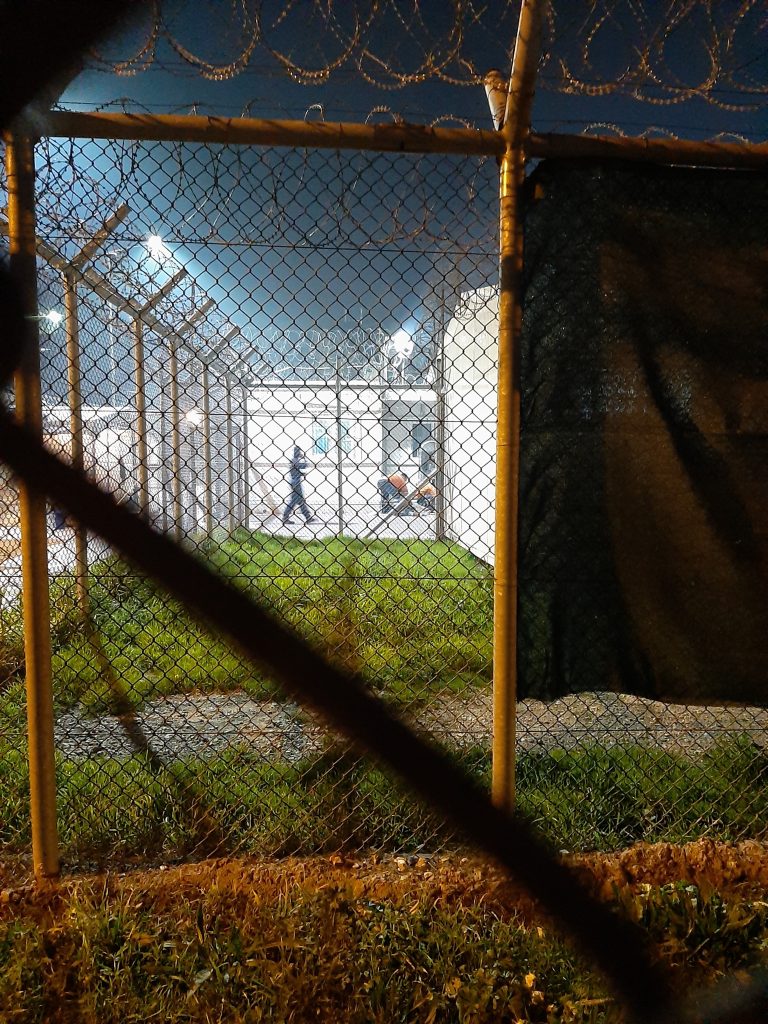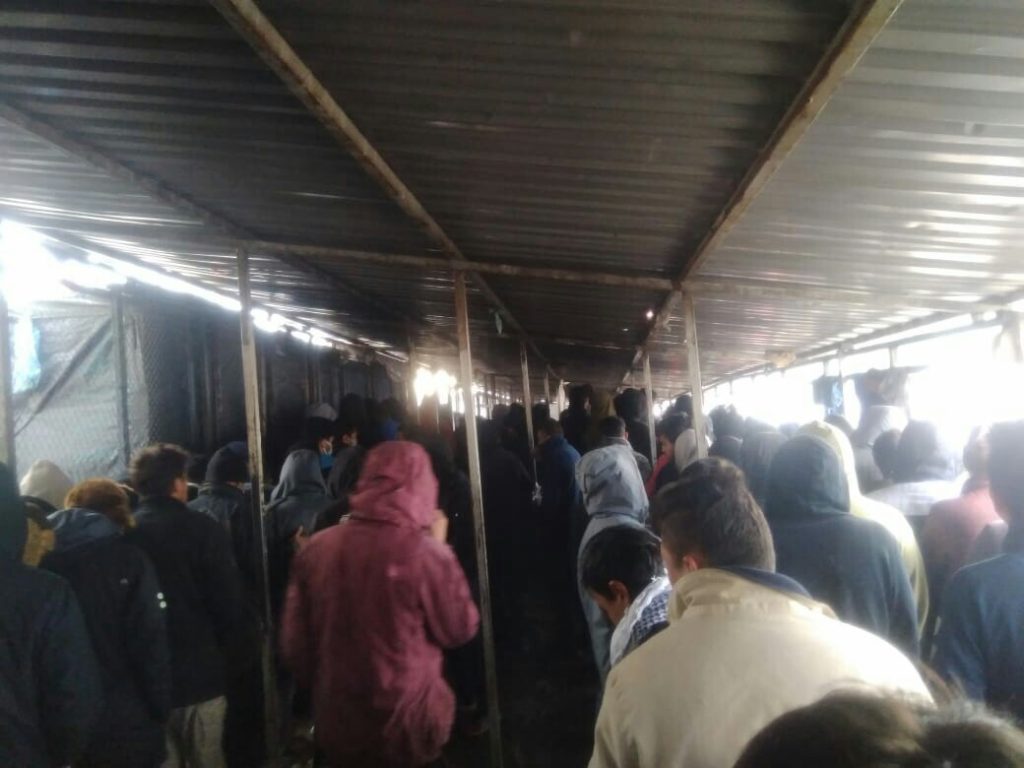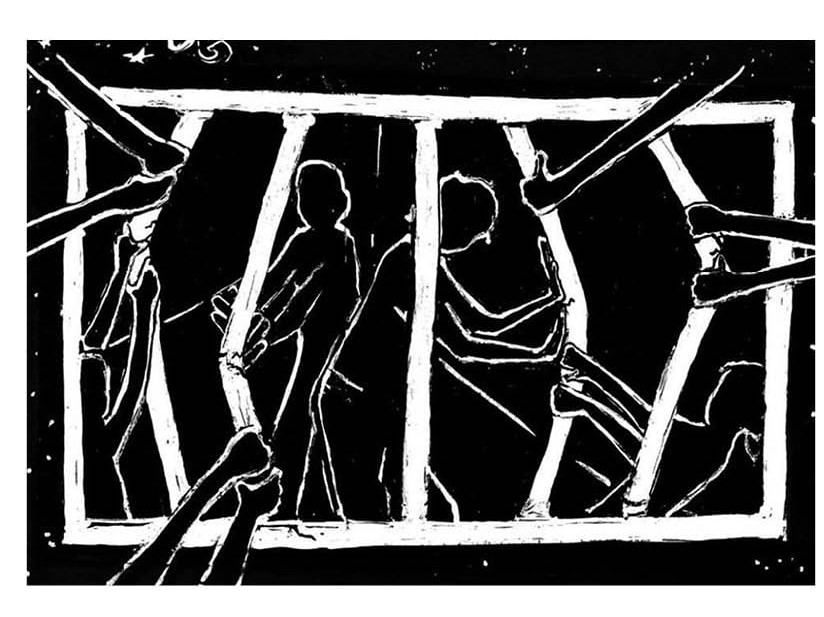The prisoners detained in Moria pre-removal detention centre (PRO.KE.K.A) in Lesvos have been on hunger strike since 5th April 2020. The PRO.KE.K.A hunger strikers demand their immediate release to avoid the disastrous consequences of a virus outbreak in the prison.
According to the hunger strikers, ‘All the world’s prisons have released the prisoners… we decided to die or freedom.’ The police in charge of the detention centre have responded with ridicule, intimidation and violence. A police special forces unit has been stationed in PRO.KE.K.A for at least 24 hours, harassing and threatening the detainees. According to one detainee, ‘They took out prisoners to interrogate one of them who received a beating … They want to know why we do this.’ Four detainees sewed their mouths closed in protest, however after a few hours doctor was called to come and remove the thread by force.
The Greek state insists that no migrant detainees will be released. This is despite the announcement of a release of prisoners with low sentences remaining and a global release of prisoners during the Coronavirus pandemic. A court determined that those held in a closed camp in northern Greece should remain detained because they were a ‘flight risk’. Instead, the Greek government has increased detention of migrants, turning refugee camps into effective prisons where access to appropriate medical care, hygiene, water, and the ability to maintain social distance are tragically impossible. The hunger strike in Moria PRO.KE.K.A is not the first in Greece after the corona outbreak. On 3rd April, detainees in Drama’s Paranesti detention camp went on hunger strike after being served inedible food. One detainee reported: ”70 riot police entered the camp last night and beat everybody with batons, five people are in critical condition and rumours one is dead.”

The men in Moria PRO.KE.K.A are held in administrative detention and have committed no crime. They are arrested only because of their status. Many of the detained are held only because of their nationality, coming from countries where statistically less than 25% are recognized as refugees. The claims of many are rejected without even receiving an asylum interview on the basis of ‘non cooperation’ simply because no appropriate interpreter could be found. Also held in Moria PRO.KE.K.A are those who broke the territorial restriction on the islands, people with a second rejection on their asylum claim awaiting deportation to Turkey, as well as those who have signed up to voluntarily return, despite there being no deportations scheduled in the foreseeable future.
Legal monitors have described conditions in Moria PRO.KE.K.A as ‘inhuman and degrading treatment’. Detainees report regular incidents of police violence and harassment, for which nobody is held to account. This includes beatings, isolation, and collective punishment in the form of lack of access to food and telephones, which are a lifeline inside the centre as they provide access to legal support and a link to family and the outside world. Prisoners are routinely denied access to medical care and psychological support. Detainees regularly report lack of access to staff, denial of vital medicine, and a refusal to take those with serious conditions to the public hospitals. The imprisonment of alleged minors and survivors of torture and war is common. Single Syrian men are ruled ‘inadmissible’ for asylum and are held pending deportation to Turkey, which is considered a ‘safe third country’ for Syrian nationals under the EU-Turkey deal.
The situation inside has reached crisis point after the implementation of New Democracy’s new asylum law. Since New Democracy was elected, there has been an increasing focus on rejections and deportations. People have been deported despite pending asylum cases. Those in Moria PRO.KE.K.A have no hope as their fellow detainees are deported without having set one free foot in Greece. On 6th January 2020 a 31-year-old man was found hanged in his cell after being placed in an isolated cell. Since then, there have been several suicide attempts. In one case, a man attempted suicide and was deported the following day. In more than one case, suicide attempts were preceded and followed by police violence and harassment.

Food line in Moria camp: Even people who live in the open part of Moria camp have to queue in close quaters for hours.

